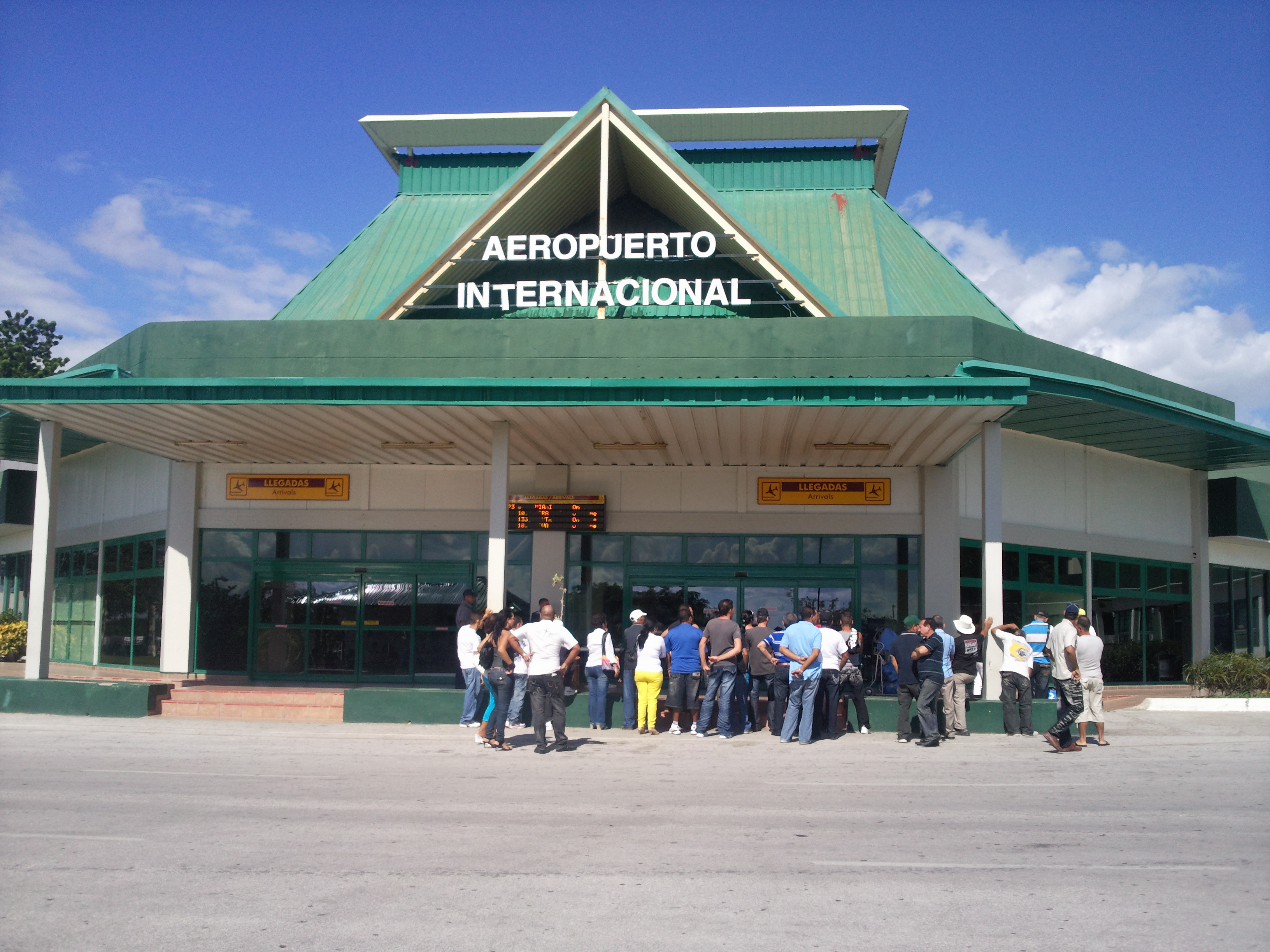 The calendar displays May 20, 2010. It’s half past ten in the morning. In my hometown of Bayamo it’s another hot muggy day that makes foreheads sweat and engenders moods very close to irritation. But that’s outside, in the unsheltered streets. In this office with its inlaid walls where I am now, an air conditioner set into the wall transforms the surrounding reality into something serene and peaceful.
The calendar displays May 20, 2010. It’s half past ten in the morning. In my hometown of Bayamo it’s another hot muggy day that makes foreheads sweat and engenders moods very close to irritation. But that’s outside, in the unsheltered streets. In this office with its inlaid walls where I am now, an air conditioner set into the wall transforms the surrounding reality into something serene and peaceful.
In front of me an official waits, sitting behind his desk. Telephone in hand. Since my entry into the premises he has only interrupted his dialog to say to me, “Good morning Ernesto, take a seat,” as natural as if he had been expecting me to appear. A little later he finishes his conversation, and pressing two numbers with intentional precision, he asks after the presence of some of the institution’s employees. He asks them to come to the office immediately. No one tells me, but I guess: it is the Board members.
The official has a serene expression on his face, no sign of severity. His name: Ernesto Douglas Bosch. His job: Director of Provincial Radio Bayamo Broadcasting, in the eastern province of Granma.
The seconds crawl by, we are alone in his office waiting for the others, the weight of silence forces him to speak.
“Let me tell you something,” he finally says, acknowledging my existence. “You have no idea of the esteem I have for you. First, for your talent, and second, for your attitude as an employee of this Broadcaster, since the time you started more than a year ago now. But there are things that are difficult for me to accept, that I have a hard time believing,” he says, and he leaves the sentence unfinished, as if it’s not worth the trouble to continue.
I listen to him, and although he doesn’t know it, I study the circumstances with an obsessive interest. I have the feeling (just in the last ten minutes since he warned me) that something definitive is going to happen in my life, and I get ready to capture the essence of whatever is said, whatever is breathed this morning.
My arrival at the institution where I have worked as a Cultural Journalist since I finished my university studies in 2008, was marked today by a coercive act I’d never before had occasion to experience.
The receptionist had been prepared; I’d barely stepped foot in the door when she informed me, with great seriousness: the Director was waiting for me in his office. I thanked her for the information. But as I could meet with the director after saying good morning to my colleagues, I chose to go first to my office, understanding in passing that this time it was about something serious. I smelled it in the curt gestures and distance of some of my colleagues, and seconds later, more explicitly, I knew it by the Safety and Security Officer, who was charged with personally taking me to the Board. So there would be no more detours along the way.
So now, when three employees from different areas came through the door almost in unison, and sat down next to me, I had no doubt that I was present at a scene (and in a starring role) for which, to be honest, I’d been prepared, though I hadn’t imagined it would come so soon.
The silence was absolute. Ernesto Douglas limited himself to reaching for a document that (only now did I notice) was conveniently located at his right hand, on the desk. He handed it to me saying,
“Read this. When you’re done we’ll talk.”
My reading lasted much longer than the general patience desired. A comprehensive understanding of this Resolution 12 of 2010, plagued by wherefores, acronyms and legal references, and edited in parts to be nearly incomprehensible, was a real academic exercise.
The essence, however, of what I had in my hands admitted no doubt: By Resolution 12 of this year the Director of the Institution expelled me from the same. Permanently.
Was I taken by surprise? Again, no. My only surprise came from the haste with which this had occurred. And, also, by the reason put forward for doing so.
Let’s see.
Behind this meeting (which although it pains me to do so, I can only classify with one term: repression), figure four names in particular. They are the base of the iceberg. The first three are proper names: Yoani Sánchez, Reinaldo Escobar, Orlando Zapata Tamayo. The third is the name of an artistic group: Los Aldeanos (The Villagers).
Just recently I had published two articles on the internet that centered on these people. First, an article (Revolution in the Village) based on Mayckell Pedrero’s documentary about this rap duo, analyzing musical, social and ideological aspects of this controversial and talented group. Then, under the title, The Death That Never Should Have Been, I published an assessment of the tragedy of Orlando Zapata Tamayo, a case increasingly hidden from the Cuban population. And finally, there was an extensive interview, A Limit to All The Hatred, with the blogger of Generation Y and her husband, also a journalist, Reinaldo Escobar.
Knowing the dismal situation of the media in my country, I didn’t have the naiveté to try to publish these articles in some official space, say a magazine, web, newspaper, or website on the national network. And knowing (also) the disregard for freedom of expression in my country, I did not suppose that, after exercising the right of my own voice to critically question the attitudes and decisions taken at the highest level, I would pass unscathed by any reprisals. Cause and effect.
But the reason Resolution 12 2010 cited as serious misconduct on my part appeared to be the fruit of a creative mind capable of emulating the best of George Orwell, and here my adaptation to the absurd, my resistance to astonishment, could only give way entirely.
What was I accused of? That, in my capacity as a journalist with a personal Internet account (only available at my workplace), I had disproportionately, in my navigation, accessed sites I did not have authorization to access, specifically those of a subversive and counterrevolutionary character attacking our country. Make no mistake: the miserable wretch who wrote this letter should sweat ice for not mentioning, expressly, the true cause of my expulsion. But not talking about this apparently was more difficult than it seemed, as the writer yielded to the impulse. He said, “The publication of articles on the before mentioned sites is also verified.” Only that.
Let us, then, clarify the argument: I was not sanctioned for publishing. No way. Doing so would have confirmed certain accusations about the violation of individual rights, freedom of expression and other demons, that it was better not to awaken in these turbulent times. Then, on further analysis, all the masks fall away and institutional anger against a journalist who dared to be true to himself came bursting to the surface, but in the two pages of horrifying evidence, my articles figure only as an argument of fifth-rate importance and are only mentioned in passing.
So then, I was punished for reading.
For reading what other voices, both inside and outside my country, say about a hundred political, cultural and social aspect so connected to the journalism I practice, as to human reason. but in essence and without make-up, I was expelled for reading what I should not. For doing exactly what the overseers in the cane fields forbid the slaves to do, under threat of violent punishment. And also, what the leader of the Cuban Revolution Fidel Castro once promulgated as a maxim of the process. “We do not tell the people to believe,” he said back then, “we tell them: read.”
Returning to the Board Room of Radio Bayamo Broadcasting, I finished my risky reading, and faced the same silence, the same dense atmosphere that doesn’t allow anyone present to say a word, or even feel comfortable.
I returned to the document to the Director, and with his, obeying his mental plan, he asked,
“Do you have anything to say?”
I didn’t know if my face betrayed my thoughts, but internally I had to smile. With perplexity.
Racing through my mind at the speed of light are the memories of so many expelled, so many censored in the most recent history of Cuba, which is not studied in any school on the Island. And not the memory of a Virgilio Piñera or a María Elena Cruz Varela in particular. I think of all the ones who say no, the unknowns who stories of abuse against their rights, or reprisals like this one, are never seen, never known.
“Of course I have something to say,” although really, I don’t want to. The size of the injustice, the arbitrariness, I’m at a loss for words.
But, finally, I speak. For the space of twenty minutes. I speak of violations, and of the amnesia my country seems to suffer from. Forgetting the results methods such as these have led to for decades, that we still haven’t come to terms with the shameful and seemingly immortal Five Grey Years, dedicating conferences to it or publishing volumes about it. I speak of my rights to information and free expression. I speak of the legal loopholes that, even without a lawyer, can be detected in a simple glance at this libelous accusation. I speak knowing that my restrained catharsis is nothing more than the right to kick the hangman. And when I finish, after a two second pause, my Director turns to the others present,
“Does anyone else want to say something?”
Heads shake, no. And to my surprise, with no more to-do, the meeting ends, though not without informing me that I have seven days under the law to submit a demand for my reinstatement.
His voice is toneless. His gestures are as indifferent as those he received me with while talking on the phone. And I think, the terrible thing is not that they are directors who give in to the temptation to use their powers in the most arbitrary and brutal way. The terrible thing is, I am sure that later today, Director Ernesto Douglas Bosch will sleep peacefully through the nights, with his wife and family relatively happy.
“You have nothing to say to me,” I ask him before getting up. “You have nothing to say after all the time I spent arguing against this punishment?”
His answer, rigid, now ruthless, comes without thinking,
“I have nothing to say. I heard you but everything that needs to be said is in that document you have in your hands. We’re done. Good day.”
At that very moment, in the second when I look into his passive eyes behind his magnifying glasses, I understand that during the entire meeting his ears remained closed to my voice. His ears, and everyone’s. No one listened to me in this spectral encounter.
Why? How evil of this Director made speaker, whose joviality at times borders on a lack of character and authority? No, I tell myself. The reason is something else. The true reason is that this man with his power to separate me from the entity he directs, is just following orders.
Explicit orders (“Take drastic measures in this case”) or implicit (“If I were you, I would handle this matter intelligently”). Or even worse, interior orders, incorporated into thought, that warns of the risks of not being assertive with a mistaken employee and in consequence being judged as an irresponsible and lazy worker. Orders of a thousand different kinds. But in the end, orders.
So even in this moment as I walk through the hallway to the exit, with the notable perception that those who look at me do with a, (yes, it’s so), humiliating pity, with eyes showing a solidarity that, if there were no danger, could sympathize with me; not even now, when I know that the link has been permanently cut, can I find any animosity against the one whose stroke of the pen it was.
Ernesto Douglas Bosch did not expel me, I think. Whether he recognizes it or not, his sad function is to be the puppet of other minds, minds that at any moment would hesitate to throw him into the fire, just as he did to me today. He is the executor of a firmly drawn direction, but at bottom, I will never know whether or not he agrees. Since none of the thousands of Cubans expelled from their jobs, removed, condemned to work in steel factories or cane fields, will ever know if the one who told him of his exile internally agreed with the measure, or if he had no choice but to carry it out for his own good.
It’s almost noon in Bayamo of my island Cuba. Under the same desert sun I once again wander the city where hundreds of years earlier a fervent and lacerated people sang the first verses of our national anthem. We, and them, we are no longer the same, I think, before losing myself in the busiest shopping street of the city.
And I think, also, that none of the people now passing me, nor those behind me, have been commenting on my case, nor could Director Ernesto Douglas Bosch back in his office with its inlaid walls, understand the state of mind with which I turn my steps toward personal and professional independence. This kind of inner harmony is similar to that of a long distance runner who, apart from the crowd (it doesn’t matter if he is ahead, behind or next to them) runs on air, without others understanding his lightness, and his smile of happiness.
Ernesto’s Blog: The Little Brother
 Monseñor Enrique Pérez Serantes, born in Galicia, Doctor of Philosophy and Theology, ordained in 1910 and professor of the Seminary San Carlos and San Ambrosio for six years. In the diocese of Cienfuegos he held the positions of Visor and Vicar General, where he founded the St. Paul Council of the Knights of Columbus. In 1922 he he was ordained as a bishop and was appointed second bishop of Camaguey by Pope Pius XI. In 1948 the Holy See appointed him archbishop of Santiago de Cuba.
Monseñor Enrique Pérez Serantes, born in Galicia, Doctor of Philosophy and Theology, ordained in 1910 and professor of the Seminary San Carlos and San Ambrosio for six years. In the diocese of Cienfuegos he held the positions of Visor and Vicar General, where he founded the St. Paul Council of the Knights of Columbus. In 1922 he he was ordained as a bishop and was appointed second bishop of Camaguey by Pope Pius XI. In 1948 the Holy See appointed him archbishop of Santiago de Cuba.

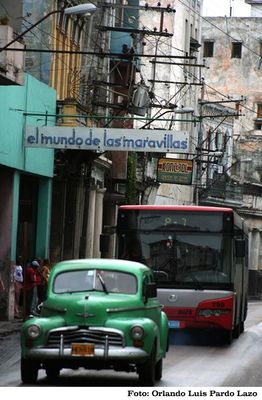
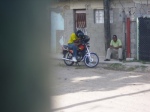
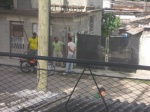
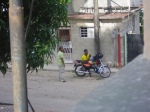

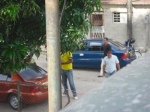
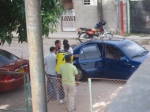
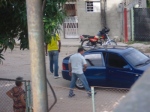
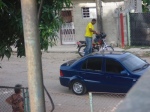


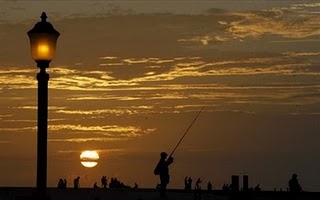 OUTSIDE OF EVERY imaginable world, is the extreme awareness of reality, you live in cell twelve feet by six feet, usually with four inmates, sometimes sixteen who have to stand up, and when it comes time to sleep they fall slowly, like fainting, like sugar canes thrown on top of one another, creating a deformed mass, you couldn’t guess which extremity belongs to whom.
OUTSIDE OF EVERY imaginable world, is the extreme awareness of reality, you live in cell twelve feet by six feet, usually with four inmates, sometimes sixteen who have to stand up, and when it comes time to sleep they fall slowly, like fainting, like sugar canes thrown on top of one another, creating a deformed mass, you couldn’t guess which extremity belongs to whom.![FIDEL RAUL REZANDO[1]](http://www.TranslatingCuba.com/images/miguel/FIDEL-RAUL-REZANDO1-240x300.jpg)
![403a[1]](http://www.TranslatingCuba.com/images/miguel/403a1.jpg)
![raul-moratinos-cardenal[1]](http://www.TranslatingCuba.com/images/miguel/raul-moratinos-cardenal1.jpg) If we start from the struggle between the military authorities and the peaceful opposition in Cuba, the first, supported by the Spanish government and the second with the Catholic Church as occasional intermediary, the recent release of five political prisoners and the transfer of six to their home provinces is a first step in the tunnel test, i.e. the search for light on the issue of human rights.
If we start from the struggle between the military authorities and the peaceful opposition in Cuba, the first, supported by the Spanish government and the second with the Catholic Church as occasional intermediary, the recent release of five political prisoners and the transfer of six to their home provinces is a first step in the tunnel test, i.e. the search for light on the issue of human rights.
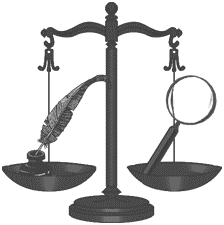 Juan, a commentator, told me he had sent a “Down with Fidel” email to the newspaper Granma, knowing that it is a crime in Cuba. He asked me what sanction they would impose if they found out who he is.
Juan, a commentator, told me he had sent a “Down with Fidel” email to the newspaper Granma, knowing that it is a crime in Cuba. He asked me what sanction they would impose if they found out who he is.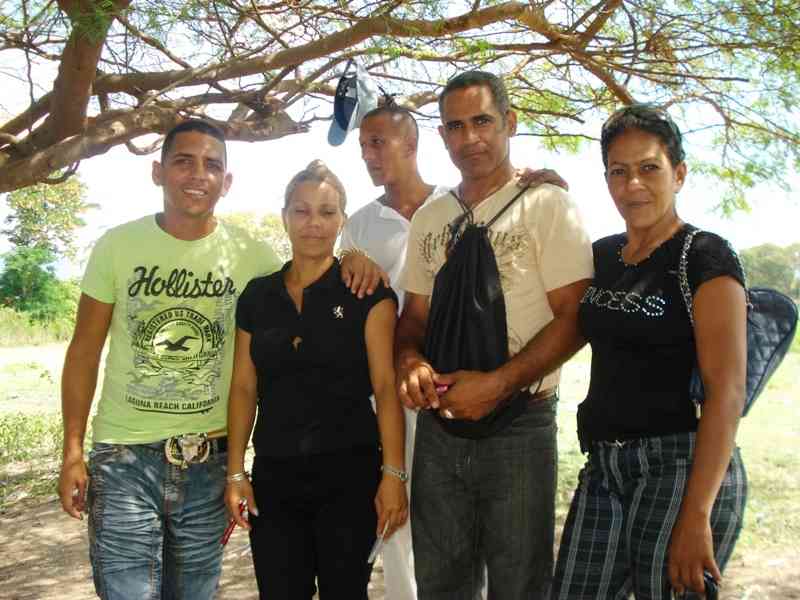
 The Cuban revolution ceased to exist in 1976. The death certificate was signed when they put into force a rigid constitution and institutionalized the country with a questionable political-administrative division.
The Cuban revolution ceased to exist in 1976. The death certificate was signed when they put into force a rigid constitution and institutionalized the country with a questionable political-administrative division.